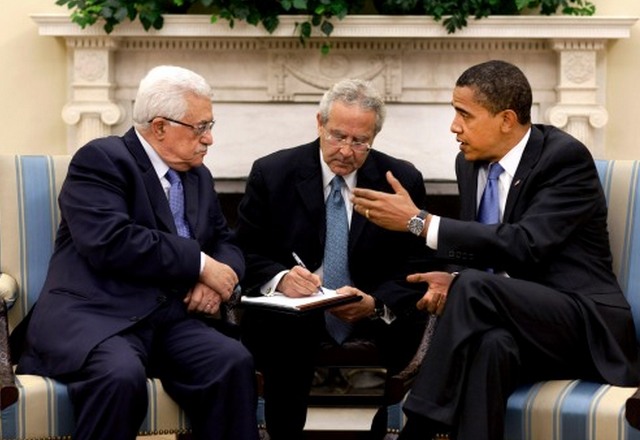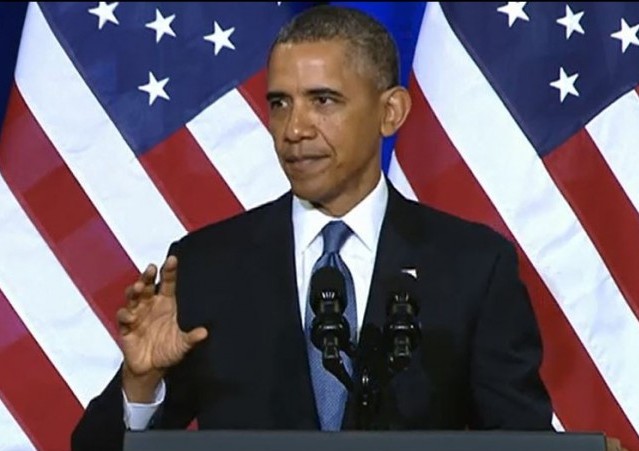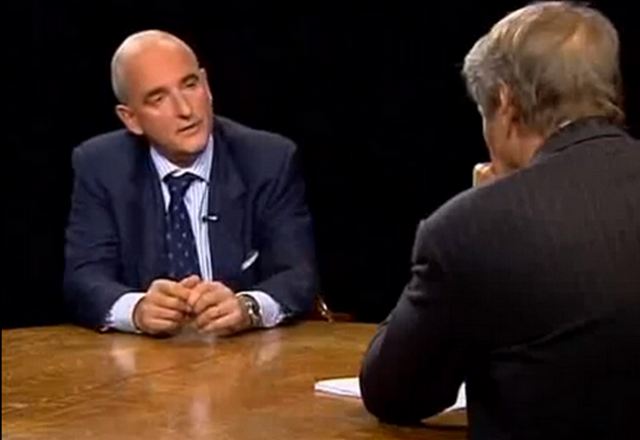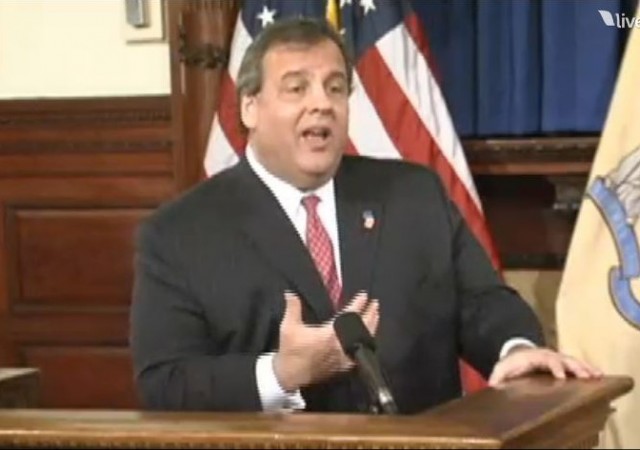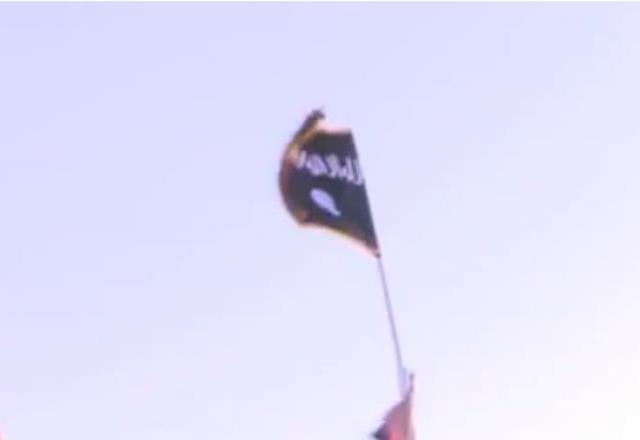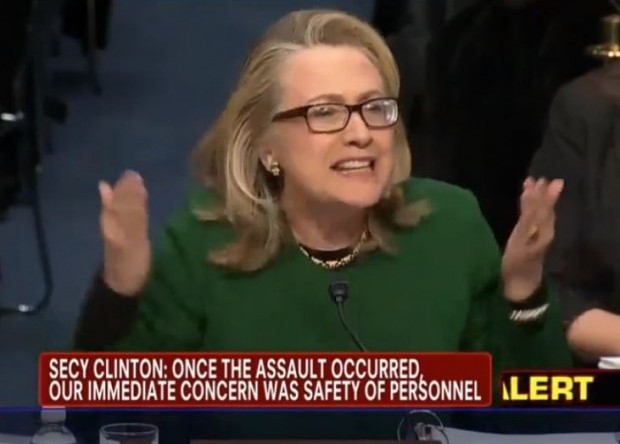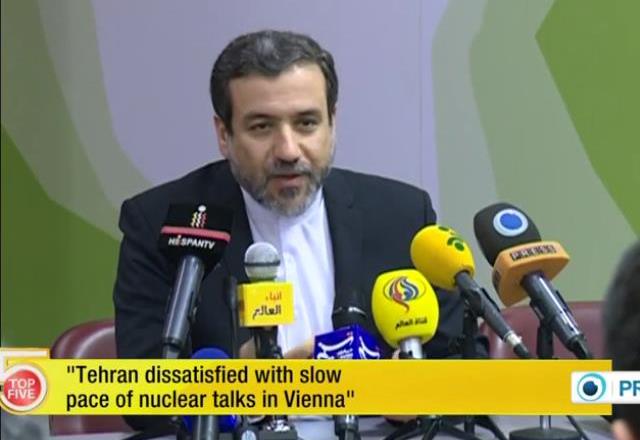NY Times Tag
No Fluke: Anita Hill was one of the first people to contact Jill Abramson
Posted by William A. Jacobson
on May 19, 2014
16 Comments
There isn't enough popcorn in the world...
The Times and the War on Women
Posted by New Neo
on May 16, 2014
12 Comments
Or rather, on this woman:
New York Times executive editor Jill Abramson was abruptly fired from the paper Wednesday, sources familiar with the news informed POLITICO. Managing editor Dean Baquet will take over as executive editor, effective immediately... “I choose to appoint a new leader for our newsroom because I believe that new leadership will improve some aspects of the management of the newsroom,” Sulzberger said. “This is not about any disagreement between the newsroom and the business side.”... Throughout her tenure, Abramson suffered from perceptions among staff that she was condescending and combative... The New Yorker’s Ken Auletta reported that Sulzberger had grown frustrated with Abramson after she pushed for more pay upon learning that her salary was significantly lower than that of her male predecessors.Abramson apparently alienated some of those with jobs above her and below her. The key figure above her appears to have been Sulzberger. Among the ones positioned below her was the man who has ended up replacing her, Dean Baquet, an African-American who is reported to have been well-liked at the Times and in his previous job. The Abramson firing has caused a big brouhaha and engendered many articles and much blog commentary. But perhaps the most informative is a piece that appeared in New York Magazine. It describes a situation in which Sulzberger never wanted Abramson anyway and gave her the job reluctantly at the outset, only to become more annoyed by her. Much of his annoyance seems to have stemmed from her bluntness in telling some people (one of them being Baquet, whom Sulzberger seemed quite tight with) that they weren't doing their jobs all that well:
The NY Times’ Nakba Narrative
Posted by David Gerstman
on May 15, 2014
8 Comments
On May 14, 1948 David Ben Gurion declared Israel's independence and the modern state of Israel was born. And every year at this time the Palestinians commemorate Nakba.
Not surprisingly, Jodi Rudoren, Jerusalem bureau chief of the New York Times spent May 14, writing about the iNakba app which was launched by the Israeli NGO, Zochrot. In Rudoren's account:
Zochrot, Hebrew for “remembering,” has for 13 years been leading tours of destroyed villages, collecting testimony from aging Arabs, and advocating the right of return for millions of Palestinian refugees and their descendants. But it preaches almost exclusively to the converted. Israel is a country where government-funded organizations can be fined for mourning on Independence Day, and where the foreign minister denounced as a “fifth column” thousands of Arab-Israeli citizens who marked the Nakba last week by marching in support of refugee return.The disconnect in this paragraph is unbelievable. Rudoren writes blithely about the Palestinian "right of return" and suggests the lack of Israeli acceptance of the right of return is due to the close-mindedness of Israeli society. But there is nothing benign about the right of return. It means the destruction of Israel as a Jewish state. In fact a founder of Zochrot is rather explicit about his intent. (Strangely Rudoren hasn't reported that a Palestinian professor who took his student to Auschwitz was ostracized by the union at his university.) People aren't usually receptive to ideas that involve their own destruction. This is the New York Times so I hardly expect to read a corrective article. Maybe the paper will deign to publish a few dissents in the letters sections, but the case that Israel's war of independence is an ongoing disaster will remain the prevalent view at the New York Times.
The mostly nonchalant reaction to Fatah’s embrace of Hamas
Posted by David Gerstman
on April 25, 2014
9 Comments
In the wake of Fatah's embrace of Hamas earlier this week there has been a very interesting reaction. Actually, the reaction has been interesting because it's been mostly non-existent.
Though the New York Times and Washington Post have reported on Fatah's betrayal of the American sponsored peace process, neither has published an angry editorial denouncing Palestinian President Mahmoud Abbas for endangering or destroying the peace process. Few news events shatter perceptions more clearly than when a supposed moderate embraces extremism. And even given the fraught history of past Fatah-Hamas agreements the symbolism here is unmistakable. A week before Secretary of State John Kerry hoped to have a framework agreement, the Palestinian Authority came to an agreement with the terrorist Hamas organization and not with Israel.
Let's do a few comparisons.
Exhibit A: New York Times
In March 2010, when Vice President Joe Biden was visiting Israel, Israel's Interior Ministry announced plans to build houses in Ramat Shlomo. Even though Ramat Shlomo is part of Jerusalem and a part of Israel's capital that everyone expects will be part of Israel in any final agreement with the Palestinians, the announcement precipitated a diplomatic crisis between Israel and the United States. An editorial in the New York Times two days later stated about the announcement, "And it is hard to see the timing as anything but a slap in the face to Washington."
In 2010, the Israeli announcement didn't and wouldn't change anything about the Middle East materially and yet the New York Times criticized the Israeli action. That Fatah-Hamas agreement, on the other hand is a game-changer. Israel dropped its objections to the PLO when the PLO renounced terror. Of course, under Arafat that declaration was meaningless as he encouraged terror against Israel even after Oslo. Abbas was supposed to be the peaceful one. But now he's embraced a terrorist organization.
Obama Achieves Peace In Middle East … Between Fatah and Hamas
Posted by David Gerstman
on April 23, 2014
7 Comments
Fatah and Hamas have reached an agreement to put their differences behind them and form a unity government.
The New York Times reports:
The two groups — the Palestine Liberation Organization, which runs the Palestinian Authority in the West Bank, and Hamas, the militant Islamist group that dominates the Gaza Strip — have reached similar accords before that were never carried out. But the latest deal comes as the fragile American-brokered peace efforts between the Palestinians and Israel are approaching an April 29 deadline without a resolution in sight. People familiar with the discussions have said the Israeli and Palestinian sides were far apart even on how to extend the talks past the deadline.The Times article ends in typical understatement.
Analysts remained skeptical about whether the Palestinian reconciliation efforts would lead to a tangible change on the ground, because neither of the factions has shown interest in genuine power-sharing in the past, and they have deep differences over how to deal with Israel, which Hamas does not recognize. Even so, some experts said that the latest effort at reconciliation appeared more serious than past attempts, because both factions are under growing pressure. Gaza under Hamas has been severely weakened by an Egyptian crackdown on the smuggling tunnels along the Gaza-Egypt border and an Israeli blockade. And Mr. Abbas, for his part, has faced growing criticism from West Bank residents about the negotiations with Israel and his own legitimacy, with Palestinian elections long overdue. He has threatened to dissolve the Palestinian Authority, which exercises limited self-rule in the West Bank, if the talks with Israel end in failure.No Hamas does not recognize Israel. It is also a genocidal terrorist organization devoted to destroying Israel. Note terror is not mentioned.
The New York Times Reports Obama is Becoming “Poisonous” to Democrats
Posted by Mike LaChance
on March 17, 2014
16 Comments
Democrats are starting to get nervous about the 2014 midterm elections and an increasing number of them don't want the president's help when it comes to campaigning. You know things are getting bad for Democrats when you read something like this in the New York Times...
Spinning the death penalty in Iran into a good news story
Posted by David Gerstman
on March 09, 2014
3 Comments
According the New York Times one life saved in Iran is a trend. A spike in executions is just a statistic....
Cutting through the BDS BS
Posted by David Gerstman
on February 14, 2014
5 Comments
Previously we noted that the New York Times has a tendency to play up the successes of the BDS movement and to play down the true nature of the BDS movement.
The New York Times has since carried two more articles about BDS; one in the news section and one op-ed. Surprisingly, the opinion article took a critical look at BDS. Unfortunately the news story was consistent with previous New York Times coverage of the issue.
In the news section, Jerusalem bureau chief, Jodi Rudoren wrote West Bank Boycott: A Political Act or Prejudice? For the most part Rudoren treats the issue "evenhandedly," giving each side equal time and not judging either side. In the course of the reporting Rudoren interviews BDS activist Omar Barghouti.
“He can say anything he wishes, but immoral? Resistance to his immoral policies can never be immoral,” Mr. Barghouti said of Mr. Netanyahu. “The litmus test is are you boycotting a group of people based on their identity, or are you boycotting something — an act, a company, a business — that you disagree with. “We have three reasons,” Mr. Barghouti said, citing the movement’s goals of ending the occupation; ensuring equality for Palestinian citizens of Israel; and promoting the right of return for Palestinian refugees. “End the three reasons and we won’t boycott.”Barghouti, who got a degree from Tel Aviv University is a pretty good example of equality of Israel's minorities. That degree also makes Barghouti a hypocrites as his boycott would affect Tel Aviv University too. Rudoren ignores these inconsistencies. She also remains silent about Barghouti's demand for the right of return. Everyone knows that the point of that "right" is the destruction of Israel. In fact, Barghouti's claim confirms that the the goal of the BDS movement is an assault on Israel's right to exist is correct. Rudoren doesn't appear to grasp this. Oddly, it is columnist Roger Cohen who got things right about BDS. In The B.D.S. Threat, Cohen writes:
NY Times plays Sympathy for the BDS
Posted by David Gerstman
on February 09, 2014
4 Comments
Professor Jacobson made a very good point last week:
The BDS movement presents little real threat to Israel currently, while the European governments do present a potential threat, but it is a diplomatic, not boycott, threat. Kerry, and the boycott movement, conflate the two.The problem is that despite the fact that there's no evidence that the BDS movement is gaining mainstream acceptance there are many who pretend that it has. Let's look at the New York Times coverage of some recent BDS activity. Last May the paper reported, Stephen Hawking Joins Boycott Against Israel:
The academic and cultural boycott, organized by international activists to protest Israel’s policies toward the Palestinians, is a heated and contentious issue; having Dr. Hawking join it is likely to help the anti-Israel campaigners significantly.There are two items of note. The first is that the BDS movement is described in terms of being a "protest" against "Israel’s policies toward the Palestinians." It is not described as a movement to delegitimize Israel. The second is the assertion that Hawking's action "is likely to help the anti-Israel campaigners significantly." This is a judgment, but it is also somewhat quantifiable. Will subsequent reporting use similar standards? The article later noted that the Oxford student union overwhelmingly voted against an academic boycott of Israel. Later that month when Alicia Keys announced that she would defy the anti-Israel activists two months later, the New York Times reported:
NY Times condemns anti-academic boycott legislation, but not academic boycott
Posted by William A. Jacobson
on February 04, 2014
15 Comments
NY Times has not a bad word to say about a boycott condemned by almost all of academia....
Intense vetting of Chris Christie will make him a stronger candidate, if he survives it (Update: Vetting or Vendetta?)
Posted by William A. Jacobson
on January 31, 2014
26 Comments
Kevin Drum at Mother Jones has noticed the obvious -- The NY Times is devoting enormous resources to going after Chris Christie.
The Times has found its mark, and now just needs actual news and actual wrongdoing to take him out. As Drum describes it, No Smoking Guns Yet, But the Noose Is Tightening Around Chris Christie:
The New York Times is pretty clearly expending a lot of resources on the various Chris Christie scandals. So far they haven't produced any smoking guns, but they're sure digging up some stuff that doesn't look good for Team Christie. First up is a look at the Christie political team, which was apparently obsessed with winning votes in Democratic-leaning towns. This wasn't because the votes themselves were all that critical to Christie's 2012 reelection campaign, but because winning in these places "would validate the governor’s argument that he would be the most broadly appealing Republican choice for president in 2016" ....After describing a couple of Times pieces that show no direct evidence of wrongdoing, just a tough politician, Drum concludes:
Freed Palestinian “Hero” Terrorist Boasts of his Murders
Posted by David Gerstman
on January 29, 2014
10 Comments
On American TV, a show called "Lovers' Tales," would likely be a romantic comedy. On Ma'an, the independent Palestinian television network, it is a weekly show interviewing freed prisoners.
This week Palestinian Media Watch reports on the interview of one Issa Abd Rabbo.
Until his release, Issa Abd Rabbo was serving two life sentences for killing two Israeli university students, Ron Levi and Revital Seri, who were hiking south of Jerusalem on Oct. 22, 1984. At gun point he tied them up, put bags over their heads and then shot and murdered both. Abbas' "hero" has now given an interview to the independent Palestinian news agency Ma'an on its weekly TV program Lovers' Tales, which interviews released prisoners. There he calmly describes how he initiated the killing, spotted the two hiking university students and waited until they sat down to rest under a tree. He then recounts how he tied them up and murdered them in cold blood.Here's the clip. Note how he betrays absolutely no remorse.
Media Meme – Chris Christie no longer refreshingly blunt, now just a bully
Posted by William A. Jacobson
on January 07, 2014
23 Comments
Bully Boy of Bayonne...
Hard Choices for Israel; Soft Treatment for the PA
Posted by David Gerstman
on January 02, 2014
6 Comments
John Kerry is returning to the Middle East to present his peace plan.
Two recent articles show the way the peace process is misrepresented in the media.
The AP reports Israel, Palestinians Face Hard Choices.
Israeli Prime Minister Benjamin Netanyahu would likely have to recognize Israel's pre-1967 war frontier as the starting point for border talks with the Palestinians, an ideological reversal that would put him on a collision course with his hardline base. Palestinian President Mahmoud Abbas fears he'll be pressured to recognize Israel as the homeland of the Jewish people, a step he believes would abrogate the rights of Palestinian refugees and their descendants.The parallelism here is bogus. In the first place the idea that having the "pre-1967 war frontier" (more correctly they should be called "the 1949 armistice lines") as a basis for any peace deal is a departure from the original intent of Resolution 242. After the 1967, Six Day War, there was an international consensus that an Israeli return to its pre-war borders was a "prescription for renewed hostilities."
NY Times Doubles Down on Benghazi Story
Posted by David Gerstman
on December 31, 2013
24 Comments
Professor Jacobson has already offered a critique of the investigative story by the New York Times regarding the attack on the American consulate in Benghazi on September 11, 2012.
Other critiques have rolled in as well:
Fifteen months after the Sept. 11 attack in Benghazi which killed Ambassador Chris Stevens and three other Americans, the narrative of the attack continues to be shaped, and reshaped, by politicians and the press. But a New York Times report published over the weekend has angered sources who were on the ground that night. Those sources, who continue to face threats of losing their jobs, sharply challenged the Times’ findings that there was no involvement from Al Qaeda or any other international terror group and that an anti-Islam film played a role in inciting the initial wave of attacks. “It was a coordinated attack. It is completely false to say anything else. … It is completely a lie,” one witness to the attack told Fox News.Since then, The Times has doubled down in support of its investigation and its conclusions with an editorial and an editor's note written by the paper's editorial page editor, Andrew Rosenthal. I'd like to add three more general observations:
NY Times: What difference at this point does Benghazi make? (Update – Confirmation Bias?)
Posted by William A. Jacobson
on December 29, 2013
29 Comments
The NY Times published a lengthy account of the Benghazi attack that is being hyped as exonerating the Obama administration (and of course, presidential candidate Hillary Clinton), but in fact the report does nothing of the sort.
The main thrust of the spin is that it was the video after all, a claim long since abandoned by almost everyone. There never was a doubt that the video inspired a generalize hostility, but that is a far cry from saying that the actual attackers who executed by contemporaneous internal administration accounts were motivated by the video.
The reporting does not support that the video was what motivated the "several dozen" armed attackers, even if it created a general atmosphere of hostility.
https://twitter.com/LegInsurrection/status/417120838060490754
https://twitter.com/LegInsurrection/status/417116566065389568
The NYT also plays a linguistic slight of hand, distinguishing between international al-Qaeda (NYT says no connection) and local al-Qaeda wannabees to try to prove that this was not an "al-Qaeda" attack. But local, independently operation al-Qaeda groups have been the motus operandi for years.
That there was no phone call from Pakistan to the local group in Benghazi does not mean that this was not a planned Islamic extremist attack and instead some spontaneous reaction to a video:
The Predictable Iranian Walkout Theatrics
Posted by David Gerstman
on December 16, 2013
5 Comments
I was right.
I wrote that the previous agreement between the West and Iran should be used as a model for predicting how the ongoing P5 + 1 negotiations will go.
Specifically, I wrote:
In the coming months when Iran and the West have a dispute over the meaning of terms of the Geneva deal or the discovery of something suspicious in Iran, Iran knows that it can bluff its way out of suffering any consequences for its bad faith.Last week the Treasury Department designated a number of companies and individuals for their illegal trade with Iran.
“The Joint Plan of Action reached in Geneva does not, and will not, interfere with our continued efforts to expose and disrupt those supporting Iran’s nuclear program or seeking to evade our sanctions. These sanctions have isolated Iran from the international financial system, imposed enormous pressure on the Iranian economy, and motivated the Iranian leadership to make the first meaningful concessions on its nuclear program in over a decade,” said Under Secretary for Terrorism and Financial Intelligence David S. Cohen. “Today’s actions should be a stark reminder to businesses, banks, and brokers everywhere that we will continue relentlessly to enforce our sanctions, even as we explore the possibility of a long-term, comprehensive resolution of our concerns with Iran’s nuclear program.”The Iranian reaction was predictable.
Iranian negotiators in Vienna halted nuclear talks with major powers to return to Tehran for consultations Thursday after Washington blacklisted a dozen companies and individuals for evading US sanctions, Islamic Republic state media reported.Iran's deputy nuclear negotiator Abbas Araqchi added:
DONATE
Donations tax deductible
to the full extent allowed by law.
CONTRIBUTORS
- William A. Jacobson
Founder
- Kemberlee Kaye
Sr. Contrib Editor
- Mary Chastain
Contrib Editor
- Mike LaChance
Higher Ed
- Leslie Eastman
Author
- Vijeta Uniyal
Author
- Stacey Matthews
Author
- Jane Coleman
Author
- James Nault
Author
- Elizabeth Stauffer
Author
- Mandy Nagy
Editor Emerita
- Learn more about the Contributors





